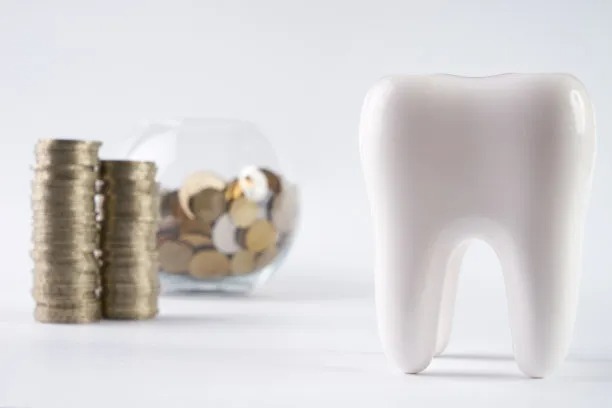Summary: Dental implants have emerged as a transformative solution for individuals seeking to restore their smiles and enhance their oral health at any age. This comprehensive guide explores the benefits, procedures, and aftercare associated with dental implants, offering insights for potential candidates, their families, and caregivers. We will discuss the advantages of dental implants, the procedure itself, who is an ideal candidate, and the aftercare essentials necessary for successful outcomes. Ultimately, dental implants provide not just functional benefits but also significant improvements in self-esteem, making them a vital option for anyone considering restorative dental work.
1. Benefits of Dental Implants at Any Age

Dental implants offer numerous advantages that can significantly improve one’s quality of life. They act as permanent solutions for missing teeth, allowing individuals to eat, speak, and smile with confidence. Unlike dentures, which may slip and cause discomfort, implants are anchored securely in the jawbone, providing a stable and natural feel.
Another essential benefit of dental implants is their contribution to oral health. When a tooth is lost, the surrounding bone can weaken and deteriorate over time. Implants stimulate the jawbone, helping to maintain its structure and integrity. This property of implants helps to prevent further tooth loss and encourages overall oral health.
Additionally, dental implants can dramatically enhance self-esteem and emotional well-being. The ability to smile without hesitation can transform social interactions, helping individuals feel more confident in personal and professional settings. The psychological benefits of having a complete set of teeth cannot be overstated.
2. Understanding the Dental Implant Procedure
The dental implant procedure generally involves a few key steps. Initially, a consultation with a dental professional is necessary. This appointment includes a thorough examination of oral health, alongside imaging techniques like X-rays or CT scans, to assess bone density and the overall condition of the mouth.
Once cleared for the procedure, the implant surgery begins with the placement of titanium posts into the jawbone. These posts serve as artificial roots, providing a secure base for the replacement teeth. This surgery can usually be performed under local anesthesia, and the recovery time typically varies from patient to patient.
After the initial healing period, which may take several months, abutments are attached to the implants. These serve as connectors for dental crowns, which are custom-made to match the size, shape, and color of existing teeth. After placing the crowns, individuals can enjoy a fully restored smile.
3. Ideal Candidates for Dental Implants
Most adults are potential candidates for dental implants, but several factors determine eligibility. A primary requirement is sufficient jawbone density, which provides the necessary support for implants. If bone loss has occurred, bone grafting may be recommended prior to the implant procedure.
Overall health plays a crucial role as well. Individuals with chronic health conditions or those who smoke may face complications during healing. A thorough discussion with a dental professional about medical history will help determine if dental implants are a viable option.
Age is not a restrictive factor, as dental implants can benefit seniors to enhance their quality of life. In fact, many older adults have found success with implants and experienced renewed confidence and independence in managing their day-to-day activities.
4. Post-Operative Care and Maintenance
Following dental implant surgery, proper aftercare is critical for successful healing and longevity of the implants. Patients are advised to adhere to their dentist’s instructions, including following an appropriate diet and practicing good oral hygiene to avoid complications.
Regular dental check-ups are vital post-implant placement. Routine visits allow dental professionals to monitor the health of the gums and bone surrounding the implants. These assessments can help catch any potential issues early, ensuring that implants remain successful over time.
Additionally, patients should engage in healthy lifestyle practices, such as quitting smoking and eating a balanced diet. These actions can contribute significantly to the longevity of dental implants and overall oral health.
Summary:
This guide underscores the importance of dental implants as a critical solution for restoring smiles and enhancing oral health at any age. Through understanding their benefits, the procedural journey, candidate considerations, and post-operative care, individuals can make informed decisions regarding their dental health. Ultimately, dental implants offer a pathway to improved self-esteem and quality of life.
This article is compiled by Vickong Dental and the content is for reference only.
Vickong Dental
Vickong Dental is a large medical group established in Hong Kong in 2008 by professors from well-known medical universities in Guangdong and Hong Kong, as well as medical doctors from key national '985' universities (including Master's supervisors and senior professors). The chain of branches brings together expert dentists with PhDs and Master's degrees from Hong Kong and Mainland China, committed to providing high-quality dental treatment.
"Vickong Dental Practices the University Motto of 'Healing and Serving Society,' with a Stable Operation for Sixteen Years. It Has Been honored with Hong Kong Enterprise Leaders's Choice,' and is a Global Trusted Implant Center for the Nobel Implant System. Recommended by Hong Kong Metro Broadcast and Guangdong Television, it Serves Customers from Over Thirty Countries and Regions, Gaining the Trust and Favor of Citizens from the Guangdong-Hong Kong-Macau Greater Bay Area and Surrounding Cities.

Thousands of customers' unanimous praise
The most recognized and highly recommended dental service by customers in the Guangdong-Hong Kong-Macau Greater Bay Area
We Ensure You Receive Detailed Care and Attention Here
Hong Kong standards, Shenzhen prices, Your Trusted English-speaking dentists

Vickong Dental Medical-Grade Instrument Disinfection Process
Vickong Dental Medical-Grade Instrument Disinfection Process

Vickong Dental Chain: A Warm and Comfortable Environment for Treatment






Appointment Hours

Q&A
Why choose Vickong Dental?
Vickong Dental practices the university motto 「Medicine to Benefit Society」, with each branch bringing together highly qualified dentists with doctoral and master’s degrees from Hong Kong and the Mainland, and has maintained seventeen years of steady operation。Recipient of 「2024 Hong Kong Enterprise Leaders Brand」, 「2025 Hong Kong Enterprise Leaders Brand」, a Nobel Biocare Global Trusted Implant Center, and a brand recommended by Metro Radio Hong Kong and Guangdong TV。
To date, we have served customers from more than thirty countries and regions,earning exceptionally high word-of-mouth recognition and trusted recommendations from residents across the Guangdong-Hong Kong-Macao Greater Bay Area and surrounding cities
We have eight major branches in Zhuhai、Shenzhen,and a consultation and service assurance center in Hong Kong,so you can book a free consultation at any time for any questions,which is very reassuring.
If I do not accept the quotation after the CT scan, will I be charged??
No! As long as the actual treatment has not started, you will not be charged any fees.
Will there be any additional charges during the treatment process?
No, there won’t be any additional charges. Before treatment begins, we will clearly explain the treatment plan and its corresponding fees. Only after the patient agrees and signs the consent form will we proceed with the dental service.
Can I pay in Hong Kong dollars?
Yes. Vickong Dental accepts payment in Hong Kong dollars. The amount will be converted based on the exchange rate of the day, and the applicable rate will be clearly communicated to you in advance.
Can I reschedule my appointment at any time?
Yes. Please contact us via **WeChat** or **WhatsApp** as early as possible, providing your original appointment time and details, along with your preferred new date and time slot for rescheduling.













